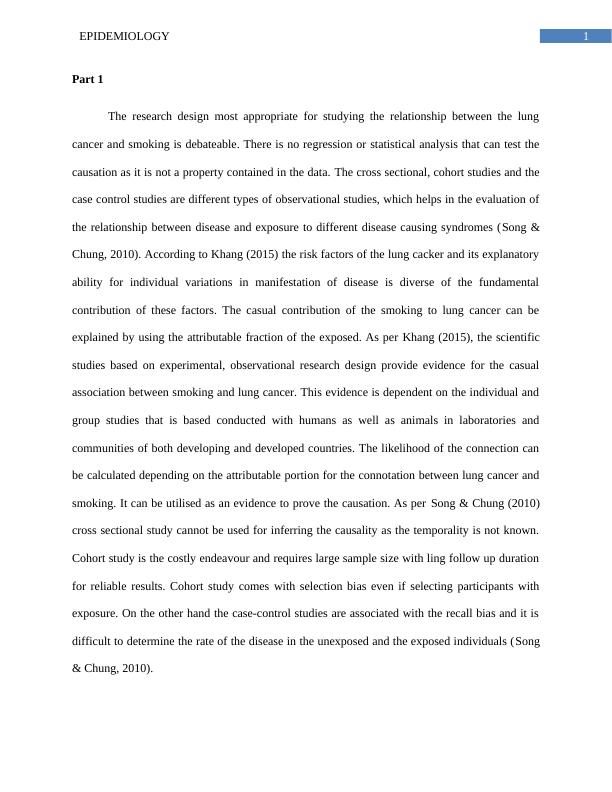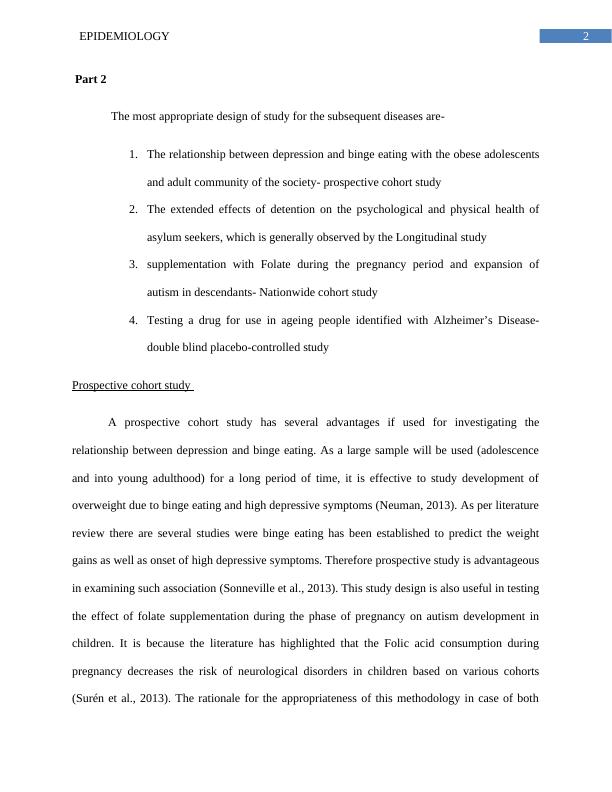Epidemiology: Study Designs for Lung Cancer and Smoking, Depression and Binge Eating, Detention and Health, Folate and Autism, Alzheimer's Drug
7 Pages1581 Words367 Views
Added on 2023-06-10
About This Document
This article discusses the appropriate study designs for lung cancer and smoking, depression and binge eating, detention and health, folate and autism, and Alzheimer's drug in epidemiology. It also highlights the advantages and disadvantages of each study design.
Epidemiology: Study Designs for Lung Cancer and Smoking, Depression and Binge Eating, Detention and Health, Folate and Autism, Alzheimer's Drug
Added on 2023-06-10
ShareRelated Documents
End of preview
Want to access all the pages? Upload your documents or become a member.
Epidemiology Study Design
|7
|1667
|391
Cross Sectional Survey Method Reports
|5
|1042
|19
Epidemiology: Case-Control Studies
|4
|544
|220
Epidemiology: Study and Analysis of Health and Disease
|7
|1575
|51
Analytic Approaches in Epidemiology Assignment
|8
|2062
|91



